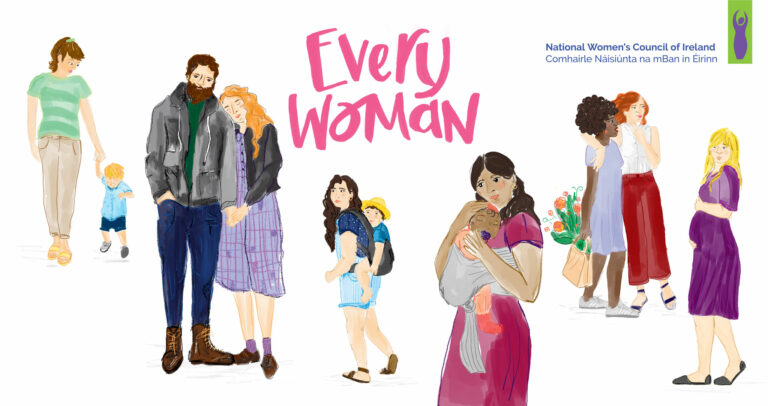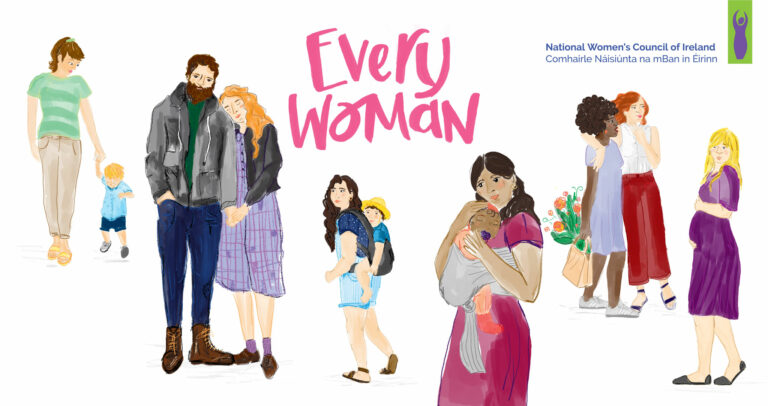[Press statement, Brussels 20 November 2017] Today, the European Commission’s 2017 Annual Colloquium on Fundamental Rights starts in Brussels. This year’s focus is on “Women’s rights in turbulent times”. The objective of the Annual Colloquium is “to improve mutual cooperation and greater political engagement for the promotion and protection of key fundamental rights in the EU.”
The Europe we want?
It is important to appreciate how far we have come in strengthening women’s rights in the past century. As the largest alliance of women’s organisations in Europe, the European Women’s Lobby recognises the importance of efforts by the European Union (EU), as equality between women and men is one of the EU’s “founding values”. The women’s movement has been a pivotal player, collaborating with governments, trade unions, businesses and EU institutions to drive real and lasting change in the lives of women and men throughout Europe.
Even so, gender equality in Europe has stagnated and even gone backwards in some areas. Recently, data of the European Institute for Gender Equality 2017 Index (GEI) showed that women are still very much treated as second-class citizens in Europe. Entrenched gender stereotypes result in occupational segregation on the labour-market as the sectors where women work are undervalued and underpaid. Women’s life-long earnings are lower than men’s by almost 40% which, in the long term, impacts on their economic independence and heightened exposure to poverty.
The burden of unpaid and low paid care work continues to rest on women’s shoulders – especially on migrant women, and, as the GEI clearly shows, women have simply have no time to be able to invest in paid work and political participation. Men continue to dominate leadership roles at powerful central banks, finance ministries and in the top positions of the largest companies.
We know that one in three women in the EU, or 62 million women, has experienced physical and/or sexual violence since the age of 15. Male violence against women knows no geographical boundaries, no age limit, no class, race or cultural distinctions and is manifested in multiple forms and involves a wide variety of perpetrators from intimate partners and family members to work colleagues.
Women are mobilising, loud and united
Populism is on the rise in Europe. Flowing from fear, poverty, inequality, and growing global complexity. Fueled by manipulation of media and information, it a poisonous blend of patriotism and patriarchy; tradition and nostalgia. It is about power and control by traditional forces and always negative for women.
At the same time, we are experiencing an unprecedented engagement in women’s rights, women mobilising on the streets, on social media, across sectors and borders and political divides. Women from Poland to Britain; from Turkey to Hungary are at the forefront of mobilising against populists, fascists and for a more equal, more sustainable and peaceful Europe:.
It’s about time
It is time for a reinvigorated political impetus to put women’s rights and gender equality at the centre of the EU project. It is time for urgent action: on European and member state level. The Colloquium is the perfect opportunity to start this process to bring women’s voices into the heart of the political discussion about the future of Europe.
The European Union can and must lead the way.
Through a political strategy for Gender Equality and women’s rights; which enables policies and legislation at EU and national level to be monitored, through annual reporting to the European Parliament and oversight through an annual ministerial meeting on Gender Equality. The Strategy should also set our EU national and EU level accountability to CEDAW, BEIJING, SDGs.
With gender equal institutions from local to the level of equal representation in all EU Institutions.
Through a gendered budget, and multi annual financial framework (MFF). Specific resources need to be available for women’s rights and for women’s CSOs in the EU, neighbourhood and developing countries, and a gender lens through all the EU budget
With a European comprehensive policy and legal framework, to put an end to all forms of male violence against women, at all levels, including the ratification and implementation by the EU and all member states of Council of Europe Convention on preventing and combating violence against women and domestic violence, the Istanbul Convention; and the appointment of an EU Coordinator on violence against women and girls, within the umbrella of the European Commission’s work on equality between women and men
We know what works, we know what to do to change the situation and we know what is possible: this is simply a matter of political will! We need a massive program of investment in women’s rights. We know it is not just possible to achieve gender quality but it is also necessary. Necessary for happier, healthier, more equal and more sustainable societies.
President Edith Schratzberger-Vecséi: “We are hopeful: hopeful about strengthening the power and voice of women to shape the future of Europe. In particular we have been and continue to be inspired by the depth and breadth of advocacy and mobilisation of young women in Europe. They have understood that at this rate of progress, they will not see equality in their lifetimes. This is simply not acceptable. Together we won’t wait another century for true gender equality.”



